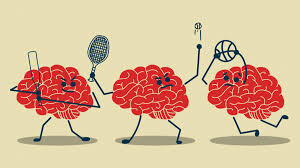
Photo Taken by The Utah Daily Chronicle
Athlete mental health has been an up and coming topic throughout the last few years. The topic has primarily spiked up conversation after the global pandemic of Covid-19. As of today, more and more sports teams, schools, universities, groups, etc., are advocating for a change around the stigma of athlete mental health.
Mental health is defined as a person’s condition in regard to their psychological emotional well-being. As we consider this within the conversation of athletics, it oftentimes gets overlooked. Athletes are held to a specific standard, whether that be within themselves or placed on them by outsiders, that says they have to perform their best all of the time. Fans, coaches, and the general public forget that athletes are humans too, and have lives outside of their perspective sports.

The image above from The Palmetto Panther demonstrated what athlete mental health truly entails. Athletes not only have the pressures to perform their best, win the game, and be at practice every week. They also have pressures from things such as school, family, social lives, extracurriculars, and much more!
According to the NCAA, there are various categories that closely correlate with athlete’s mental well-being, specifically at the collegiate level. These categories are…
- Academic experiences
- Rage and Gender Equity
- Pressures of transferring
Although these 3 categories are pointed out by the NCAA, there are many more issues that affect the mental health of an athlete. To read more from the NCAA, click here: https://www.ncaa.org/news/2022/5/24/media-center-mental-health-issues-remain-on-minds-of-student-athletes.aspx
To get a better idea on what athlete mental health really is, I found a TEDx Talk that explains athlete mental health from the perspective of a college athlete. Victoria Garrick, a volleyball player at USC shares her experience becoming more aware about the mental health of athletes. She goes into depth about how heavy a student athlete’s schedule truly is, and all of the things that go through their head each and every day. Garrick mentions that she had depression for over a year before she even realized it.
It is important for athletes to get the resources that they need to be able to combat any negative feelings and mental issues they may be having. Athletes should be able to recognize when they need help, feel comfortable asking for it, and know they have a support system. An athletes value is based on more than just the results of their performance.
To hear more about athlete mental health from a student athletes perspective, click on the links below!
Alex Crawford, Wartburg College: https://buzz.uni.edu/behindthesport/wartburg-wrestling-alex-crawford/
Grace Boffeli, the University of Northern Iowa: https://buzz.uni.edu/behindthesport/more-than-just-a-basketball-player/




Good thoughts on a subject that has been ignored too long